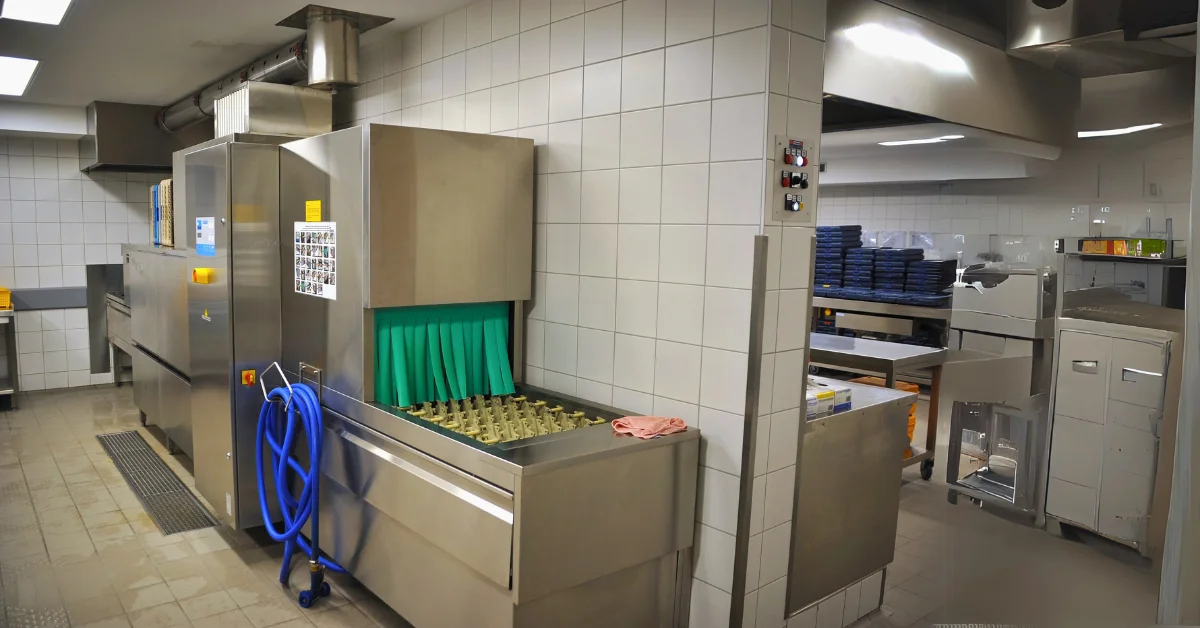In a high-volume commercial kitchen, the industrial dishwasher is frequently the behind-the-scenes hero that provides hygiene, efficiency, and smooth operation. It quietly washes hundreds of dishes every day, dealing with grease, grime, and residue to keep your kitchen in compliance and your service on time. But as with all equipment, even the toughest dishwasher will eventually start to break down. Understand when to replace your industrial dishwasher instead of just fixing it to spare your business expensive downtime, unexpected failures, and regulatory trouble.
Poor Cleaning Performance
One of the initial and more apparent indications that your dishwasher could be due for replacement is when it ceases to be effective. If dishes, cutlery, and glassware are all consistently being removed from the dishwasher soiled, greasy, or with a white residue, even after proper detergent and settings have been used, then there could be a more serious problem. These issues might be related to inner damage, deteriorating spray arms, or a clogged pump. When cleaning is sporadic and rewashing becomes a habit, your dishwasher is no longer performing its main job, and it might be time to think about a replacement.
Rising Utility Costs
Another key sign is an unexpected increase in water and energy bills. If your utility bill has visibly gone up over the past month, it might be because your older dishwasher is using more energy than it needs to. Older or faulty units are typically less efficient, using more water and longer cycles to accomplish mediocre performance. This lack of efficiency can quietly drain your bottom line, so a newer, energy-saving unit would be a smarter choice in the long term.
Strange Noises During Operation
Strange sounds are also an unmistakable indication that something is amiss. Industrial dishwashers do make a certain amount of noise, but grinding, screeching, or knocking that is sudden or continuous is cause for alarm. These sounds might be due to internal parts like the motor, belts, or bearings beginning to fail. When vibrations are felt along with the sound, the machine might be experiencing loose or out-of-position parts. Disregarding these admonitions might lead to a total system breakdown at the most inconvenient time, such as during a lunch or dinner rush.
Frequent Breakdowns and Repairs
Recurrent breakdowns and repeated service calls should not be considered as a minor inconvenience but as warning signs that the machine is approaching the end of its lifespan. If you are finding yourself calling the technician frequently and constantly replacing components, the sum of repair costs can easily outweigh the cost of a new dishwasher. More significantly, these persistent problems can disrupt your kitchen’s workflow and impact service quality, both of which have direct consequences on customer satisfaction and your bottom line.
Sanitization Failures
Sanitization problems are another matter of utmost concern. Your industrial dishwasher needs to reach extremely high temperatures repeatedly to effectively sanitize dishes and pass health and safety codes. When your machine cannot sustain the proper temperature or cannot get through sanitizing cycles, it jeopardizes your whole operation. Passing a failed health inspection because your equipment is not sanitizing properly can lead to hefty fines or a temporary shut down, which no foodservice establishment can afford.
Physical Deterioration
Any signs of visible wear, including rust, water leakage, or degeneration of the internal components, are physical indications that should never be disregarded. Rust on the interior of the dishwasher will contaminate dishes and often is indicative of corrosion on the inside. Leaks can wreck flooring and adjacent equipment, whereas shattered seals or cracked components may compromise the efficacy and sanitation of each wash cycle. These are unmistakable indicators that your appliance has grown older than it is safe to have in service.
Outdated Equipment
Lastly, the age of your dishwasher is also important in deciding whether you need to replace it. The average working life of most industrial dishwashers is about ten to fifteen years. If your machine has already passed this milestone, you will start noticing a series of issues at once, ranging from irregular performance to trouble sourcing replacement parts. Commercial kitchen equipment technology improves constantly, with newer dishwashers being more efficient, offering enhanced sanitation facilities, and aligning with modern environmental and energy regulations. Maintaining an outdated model usually brings more damage than benefit.
Conclusion
In short, getting a new industrial dishwasher is not something to be rushed into, but procrastination can lead to a domino effect of issues that impact all facets of your business. If your existing model is performing below par, eating into your profits, or not passing health and safety regulations, the best course of action is to think ahead and spend money on a new, cost-effective, and reliable one. This proactive approach ensures the smooth operation of your kitchen, protects your reputation, and ultimately supports your business’s growth and sustainability.
If you’re noticing several of these warning signs in your own dishwasher, now is the time to evaluate your options and make a strategic move before a complete breakdown occurs.





